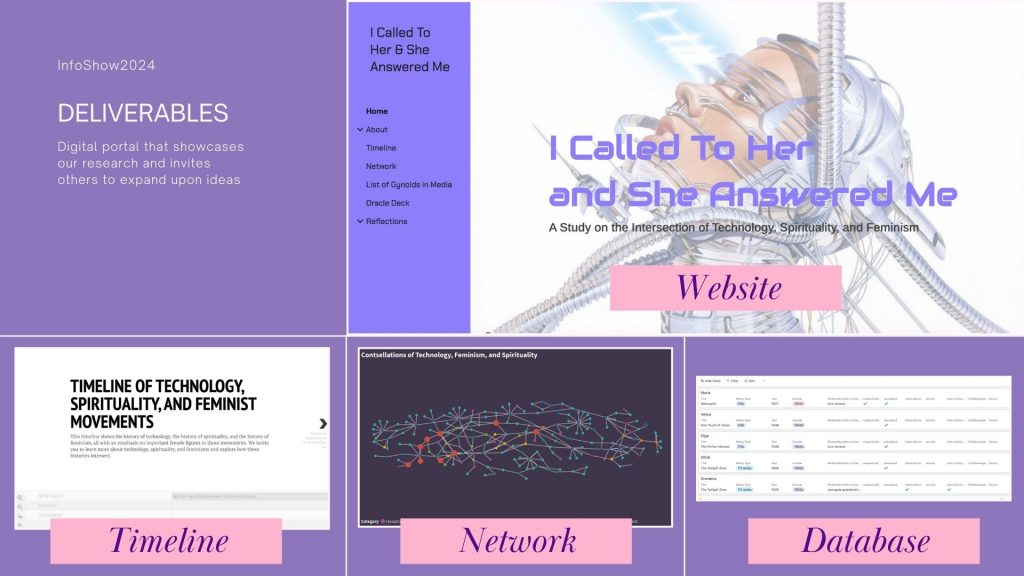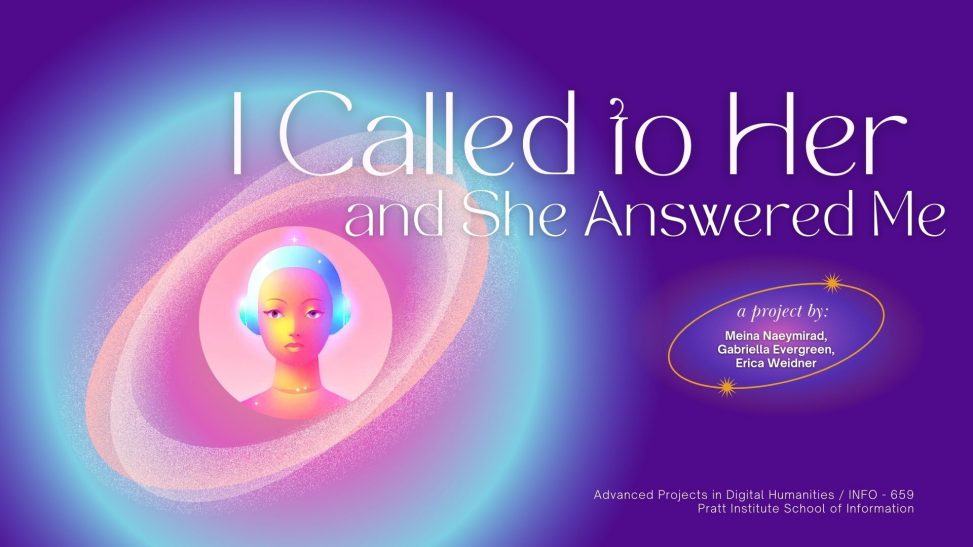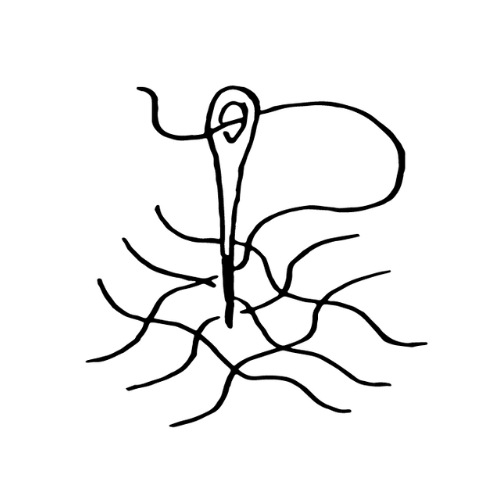I Called to Her and She Answered Me: A Study on the Intersection of Technology, Spirituality, and Feminism looks at the roles of women in spirituality, social justice and technology in order to reframe and reclaim how we perceive the history of related cultural and technological movements. This project focuses on the rise of spiritual, technological, and feminist movements starting in the 1800s in North America due to the increased access to new spiritual texts and desire to raise one’s conscious awareness in the face of modernity. We aim to facilitate conversations and further study with communal experiences, an accompanying website, and customized oracle deck. We hope this will be of use to those who are interested in critically examining and reimagining technology in the future as the idea of one’s spiritual well-being is often a point of anxiety and the balance of power remains uncertain.
The project title is inspired by the human act of using our voice to seek answers. Think of all the ways we call into the void — whether we seek a generated response from artificial intelligence, or an inexplicable sign of a higher power, or the reassurance of our mother, we encourage you to rethink the connections between spirituality, technology and gender, as well as your own relationships to them. This project is guided by the theoretical exercise of teaching a gynoid (feminized android) with the knowledge of women’s roles in the histories of metaphysics/religion, activism and computation, with the goal of reprogramming her to help her understand the past in order to help guide us in remaking the future.

The website is composed of several bodies of research including a timeline, network, gynoids in media database, and a downloadable oracle deck.


Chatgpt’s answer to “does ai know everything?”
AI can access a vast amount of information and perform a wide range of tasks, but it doesn’t “know” everything in the way humans do. The knowledge it receives is based on the data it has been trained on and the ability to generate responses based on patterns in that data.
The Techno-Spiritual Feminism Oracle Deck
What would happen if the AI was trained to reflect different perspectives, values, and knowledge systems that have been largely ignored or misconstrued by a dominant patriarchal authority? This deck was created to incite conversations and ideas based on nine archetypes, symbols and dualities in order to teach the gynoid on important lessons on gender, spirituality and technology as a simulated lesson on AI training as well as a pedagogical tool for exchanging cultural history and knowledge.


This is the final project for the Fall 2023 Advanced Projects in Digital Humanities Class at Pratt Institute’s School of Information.
Learn more about our project by clicking the link to our website below:

